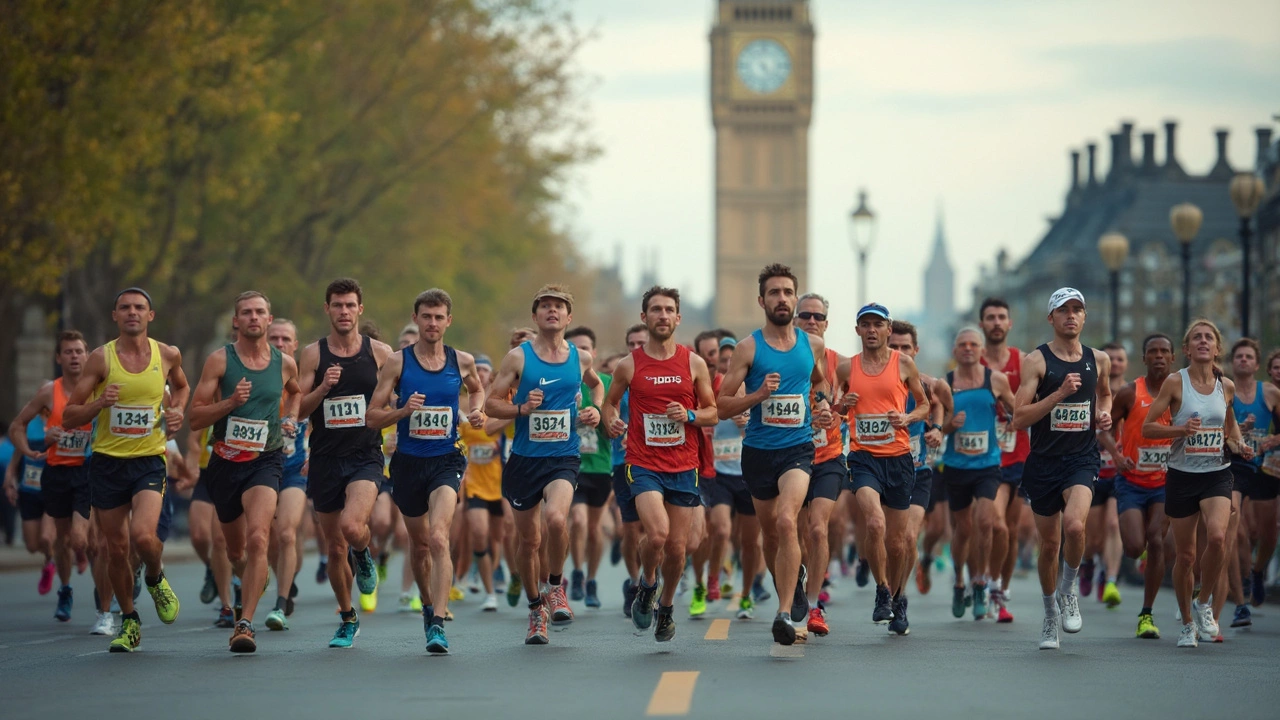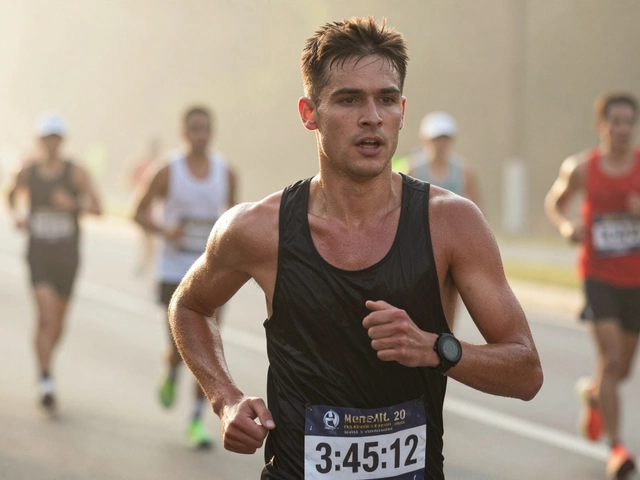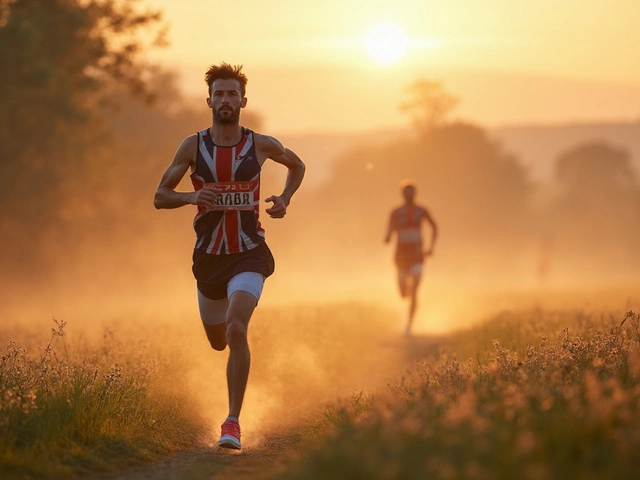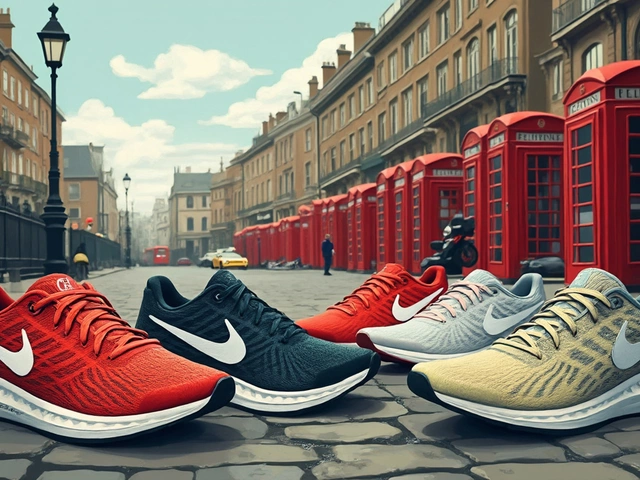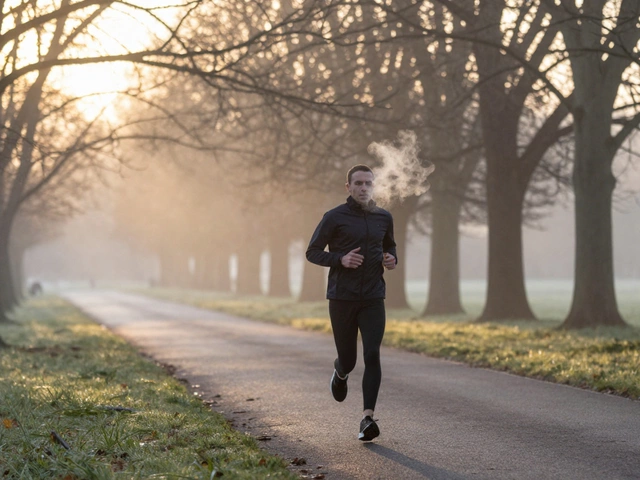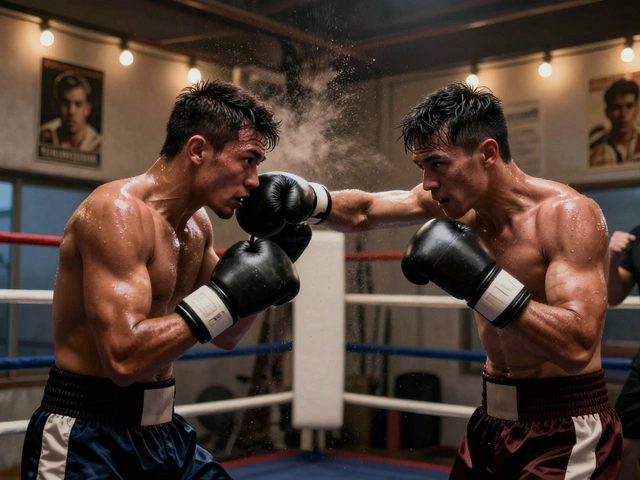At What Age Do Runners Peak? Insights for Marathon Training
So, you’ve probably heard a lot of chatter about the “prime” age for marathon runners. Some swear it’s your early twenties, others push for later. But dig into the race results and science, and the answer isn’t just a number—it’s a whole story.
Why does it even matter? Well, knowing when runners usually peak helps you set smarter goals for training and racing. It also clears up the pressure for those who think they’re ‘too old’ or ‘too young’ to aim high. Spoiler: your fastest marathons might not line up with your college years.
If you’re planning your next race or just want to squeeze more speed from your legs, understanding the age curve can give you a real advantage. And hey, this isn’t just trivia—it could change the way you train, recover, and set marathon dreams. Ready to see what the numbers and real-life stories tell us?
- Why Does Peak Age Matter?
- Data from Real Marathons
- Biology Behind the Numbers
- Does Gender Change the Peak?
- Tips to Keep Progressing at Any Age
- More Than Just the Clock: The Mental Edge
Why Does Peak Age Matter?
If you’re into marathon training or watching world-class races, you’ve probably noticed something interesting: the winners aren’t always the youngest in the pack. Knowing your peak age can help you train smarter, avoid injuries, and set goals that actually fit your body’s reality. It’s not just trivia—this stuff impacts results.
Age shapes everything, from recovery time to how much training you can handle. If you catch that sweet spot—say, your late twenties to mid-thirties for marathoners—it’s like hitting the perfect gear. Pushing hard outside these years doesn’t mean you can’t set new personal bests, but you might have to tweak your running performance strategies.
"Most elite marathoners reach their fastest times between ages 27 and 35. That’s where endurance, speed, and experience all line up." — Dr. Alessandra Lim, Sports Physiologist at Runner’s World, 2023
Here’s the deal: your body changes as you get older, and so should your plans. Runners in their peak years tend to recover faster, handle tougher training blocks, and hit race day feeling strong. But that doesn’t mean the rest of us are out of the game. It just means you need to know where you are on the map.
| Age Group | Average Marathon Time* |
|---|---|
| 18-29 | 4:15:00 |
| 30-39 | 4:05:00 |
| 40-49 | 4:20:00 |
*Based on data from the 2022 World Marathon Majors.
If you focus on where you fall on this age spectrum, you can tailor your goals, your training, and your race-day plans to match. In short, knowing your peak age isn’t about limiting yourself—it’s about getting strategic and making the most of every year you lace up.
Data from Real Marathons
Forget the rumors—let’s look at hard numbers. If you check out the big races like Boston, Chicago, and Berlin, a clear trend pops out: runners usually hit their peak somewhere between their late 20s and late 30s. The average age of top finishers at the Boston Marathon, for example, has stuck right around 31-33 for men and about 29-33 for women over the past decade. Check out this simple breakdown:
| Race | Average Age of Top 100 Men | Average Age of Top 100 Women |
|---|---|---|
| Boston Marathon 2023 | 32.1 | 31.5 |
| Chicago Marathon 2022 | 30.8 | 29.9 |
| Berlin Marathon 2023 | 31.4 | 30.2 |
It’s not just about the elites, either. Even if you scan through age group results, most runners logging personal bests seem to cluster in that same range—roughly late 20s to around 40. The big difference is that recreational marathon training often gives you a wider window to improve, since the limit isn’t just pure genetics but also how you train and recover.
To put it into perspective, here’s what Alex Hutchinson, science writer at Outside magazine, said after looking into marathon age data:
“For both men and women, the average age of peak marathon performance is surprisingly old – usually well into the 30s. We’re not past it just because we’re no longer 25.”
Another cool fact: the world record in the men’s marathon was broken by Eliud Kipchoge at age 37. That should put to bed the idea that speed belongs only to the super young. If you’re putting in the work, aiming for your best finish, or qualifying for Boston, age is just part of the package—not the whole story.
Wrap your head around those numbers and you’ll see why the question of "at what age do runners peak?" is more layered than most people think. Your next PB could come later than you expect.
Biology Behind the Numbers
Think your muscles or VO2 max is all that sets your running performance? There’s a bit more to it. The age you hit your peak as a marathon runner boils down to a mix of genetics, training years, hormones, and how your body bounces back after workouts.
Let’s talk about the big stuff. VO2 max—that’s your body’s ability to use oxygen during long efforts—usually peaks in your early 20s and slowly drops after 30. But that’s not the end of the story. Your running economy, or how efficiently you use energy while running, often keeps improving through your 30s. Turns out, lots of marathon winners are in the 30-39 age bracket, not the 20-somethings.
Muscle mass does naturally decline with age, but you can keep it up with strength work and smart training. Tendons and ligaments stiffen as you get older, so taking care of recovery and flexibility matters more each year. Testosterone and certain growth hormones also drop over time, which can affect how quickly you build or recover muscle. But with consistent training and good food, runners in their 30s and 40s can still set personal bests in marathon training.
Check out this basic breakdown on how age affects three big factors:
| Age Range | VO2 Max | Running Economy | Recovery |
|---|---|---|---|
| 20-29 | Peak | Learning phase | Fastest |
| 30-39 | Slight decline | Best | Stable |
| 40+ | Gradual decline | Can stay strong | Needs more focus |
One more reality: the longer you stick with marathon training, the smarter your body gets at handling the stress of 26.2 miles. Experience counts for a lot. Biology might set some limits, but it doesn’t write your finish time—your choices and consistency do most of that heavy lifting.
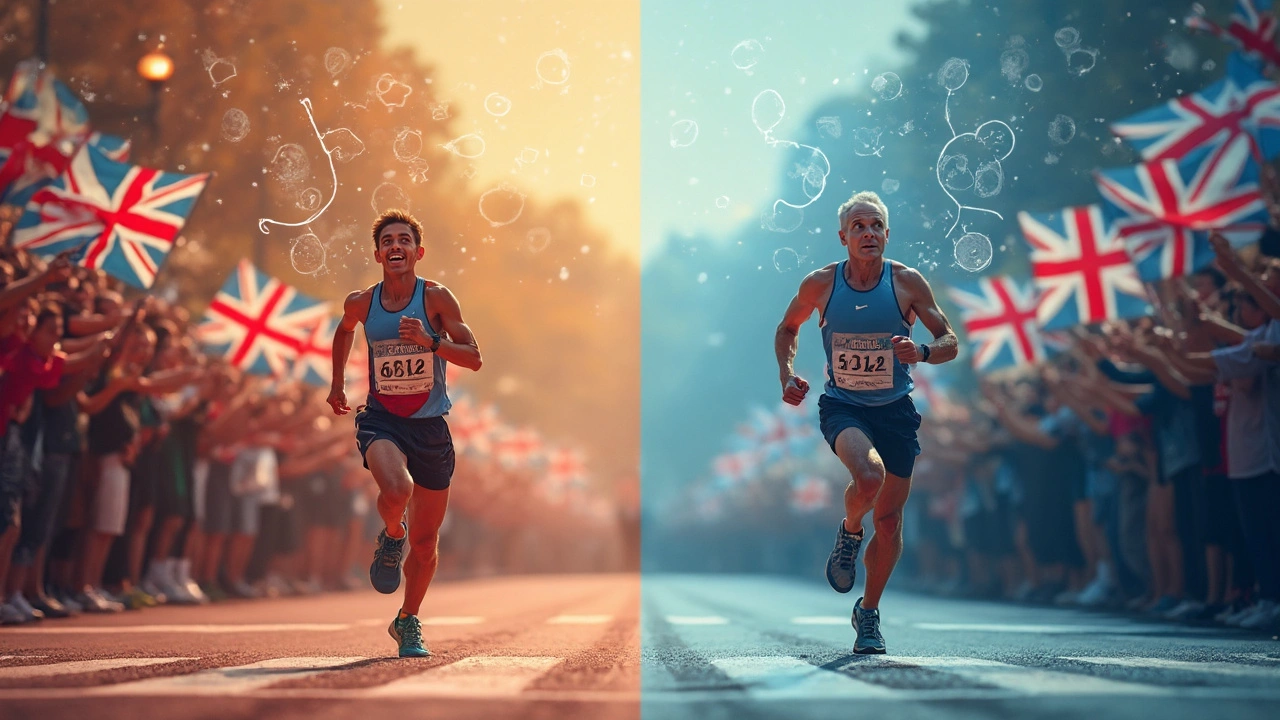
Does Gender Change the Peak?
Yep, gender plays a real role when it comes to the peak age for marathon runners. If you look at big race data, like the Boston and London Marathons, you’ll notice something interesting: men and women hit their top times at different ages, but not by much.
For men, the magic number is usually between 27 and 32. Most elite male marathoners get their fastest times right in that range. For women, the prime is a bit later—usually between age 29 and 34. It’s not a huge difference, but it matters if you’re trying to plan your personal best or wonder if you’ve already missed your shot.
Running performance peaks slightly later for women, and there are a few reasons for this. Some scientists think it’s linked to differences in muscle development and hormonal shifts. Others think life outside running—like when women often start seriously training or juggling family—can affect those peak years. Nobody’s saying you can’t break personal records before or after, but the averages are clear across thousands of race finishers.
Check this out. Here's how the average ages of personal bests stack up in major marathons:
| Gender | Average Peak Age | Source Marathon Data |
|---|---|---|
| Men | 29 | London, Boston, Berlin |
| Women | 31 | London, Chicago, Tokyo |
It’s not just the elites—everyday runners show the same pattern. Women in their early thirties often run as fast as the men slightly younger than them. So, don’t stress the calendar. For both genders, the window is pretty wide, and plenty of people smash their personal records outside these averages. Just know the age trends can help if you’re lining up your next marathon plan.
Tips to Keep Progressing at Any Age
You don’t have to be a kid to keep getting faster or stronger. In fact, marathoners in their 30s, 40s, and even 50s still smash personal records. The trick? Smart training, a little strategy, and accepting that marathon training has to change as you do.
- Adjust Your Volume and Intensity: Past 35, your body handles stress and recovery differently. You might not be able to pile on tons of hard mileage week after week, so switching in more key workouts and fewer junk miles can yield better results. Quality beats quantity, especially when you have a life outside running.
- Don’t Skip Strength Work: As you age, muscle mass shrinks—unless you fight back. Studies out of Boston University show runners over 40 gain more from adding two days a week of strength training (think: bodyweight squats, planks, or kettlebell moves) than just logging more miles.
- Stay on Top of Sleep and Recovery: You’ll heal slower the older you get. Skimping on sleep or recovery can stall your progress and spark injuries. Schedule in one full rest day a week and try to snag at least 7-8 hours of sleep each night.
- Mix Up Your Workouts: Variety matters more as you rack up the birthdays. Toss in tempo runs, hill sprints, and cross-training like cycling or swimming to keep your body guessing—and avoid beating up the same muscle groups.
- Watch What You Eat: As your metabolism changes, paying attention to protein (for muscle repair) and anti-inflammatory foods matters more. Getting enough carbs is still key for long runs, but don’t ignore nutrient-dense veggies and healthy fats.
If you’re curious how pacing or finish times shift with age, check out this quick comparison from recent marathon data:
| Age Group | Average Marathon Time (Male) | Average Marathon Time (Female) |
|---|---|---|
| 20-29 | 3:44 | 4:05 |
| 30-39 | 3:48 | 4:12 |
| 40-49 | 3:57 | 4:21 |
| 50-59 | 4:20 | 4:45 |
Don’t worry if you’re not matching your fastest days—staying consistent will pay off. Set new goals, stay curious, and remember that many runners peak in their mid-30s to early 40s, not just their twenties. Progress is possible at any age with the right strategy, and your peak could be ahead of you, waiting to be claimed.
More Than Just the Clock: The Mental Edge
Speed and stamina aren’t the only things that matter in marathon training. Experience and mental toughness make just as much of a difference—sometimes more. Ever notice how seasoned marathoners seem to know exactly when to hold back and when to push, even if their younger rivals have fresher legs? That’s not luck. It’s the mental edge, and it grows with age, not in spite of it.
Race-day nerves, pacing, and pain management are learned skills. According to data from the London Marathon, runners in the 35-45 age bracket tend to pace themselves more consistently than those in their 20s—and those who manage their effort well often finish with stronger times. That’s huge in a race that’s as much about brains as it is about brawn.
The peaks you see on paper—like the ages where runners set their fastest times—often hide how crucial it is to handle setbacks, bad weather, or even just a stretch of low motivation. Older runners often talk about the long game: recognizing that one bad run doesn’t define you and that adapting your training when life gets busy keeps you in the race far longer. This flexibility is a secret weapon.
Want to sharpen your mental game? Try these:
- Train your mind along with your body—practice mindfulness, visualization, or simple breathing exercises before big workouts.
- Keep a running log and write down how you felt mentally as well as physically after long sessions or races.
- Join a club or train with others—community support boosts confidence and motivation, especially on tough days.
- Debrief after every race, good or bad. What did you learn about pacing, setbacks, or getting through rough patches?
Remember, if you’re chasing your peak age, don’t get caught up measuring progress with a stopwatch alone. The stronger your mindset, the more likely you are to hit personal bests—even as the calendar keeps flipping. Running performance goes way beyond youthful legs. Harnessing experience and mental grit means every year you run, you get a little wiser—and that’s a real edge out on the course.
